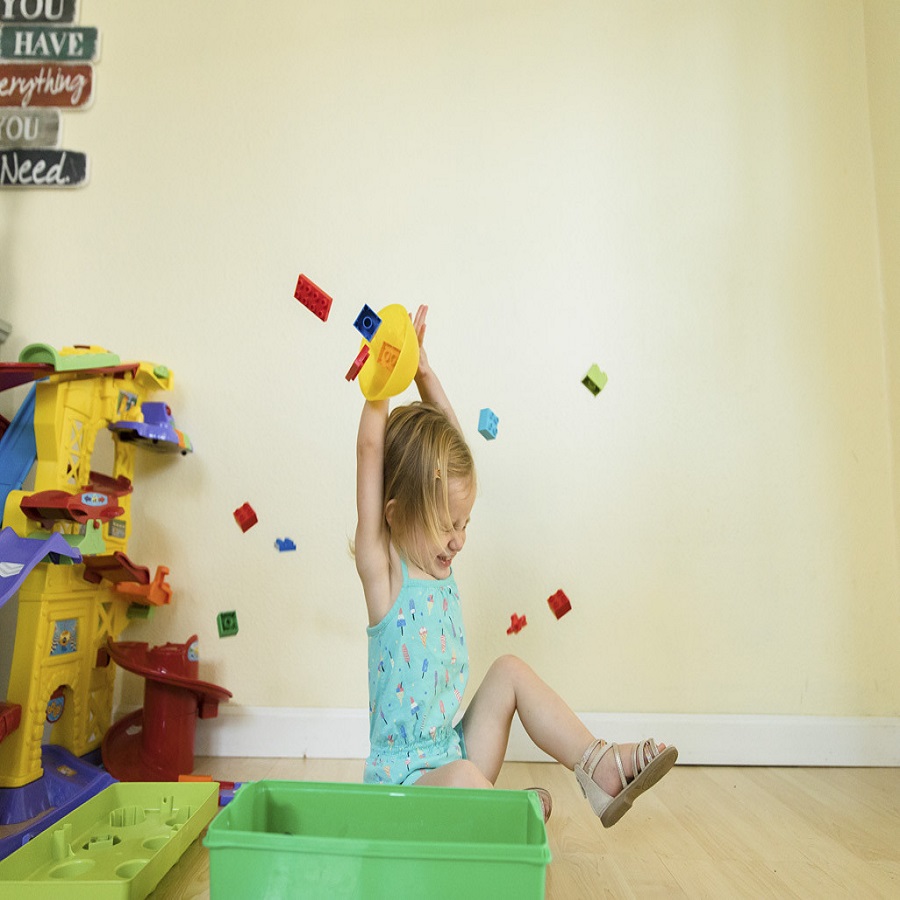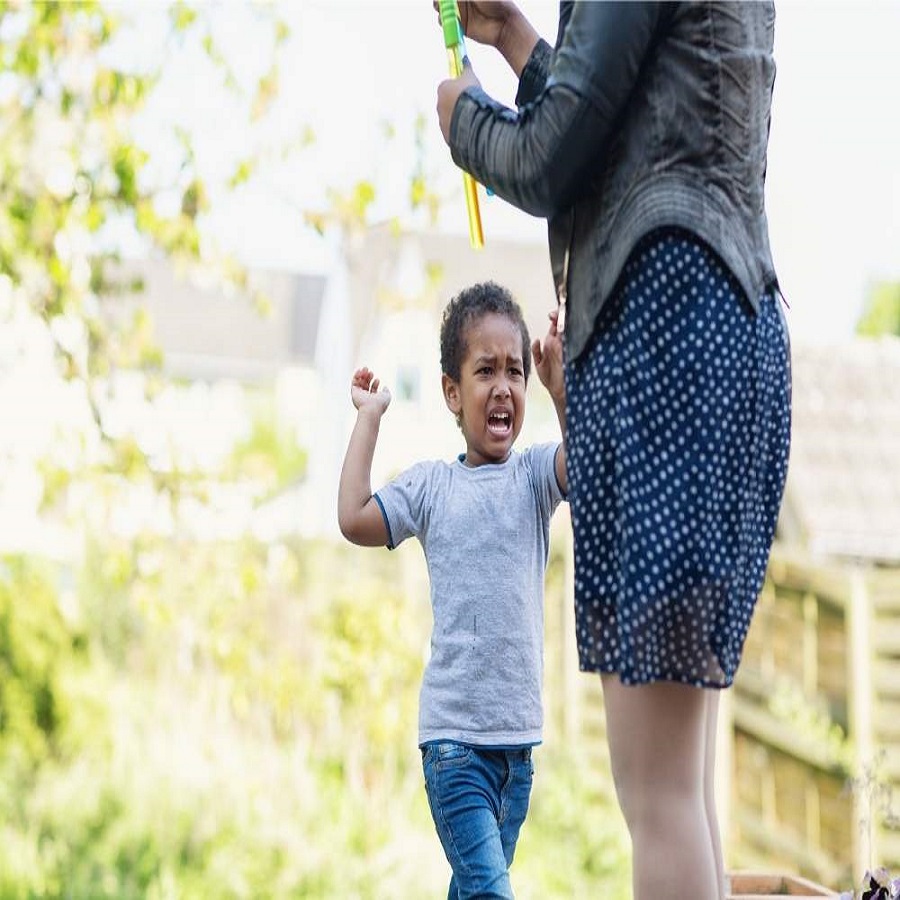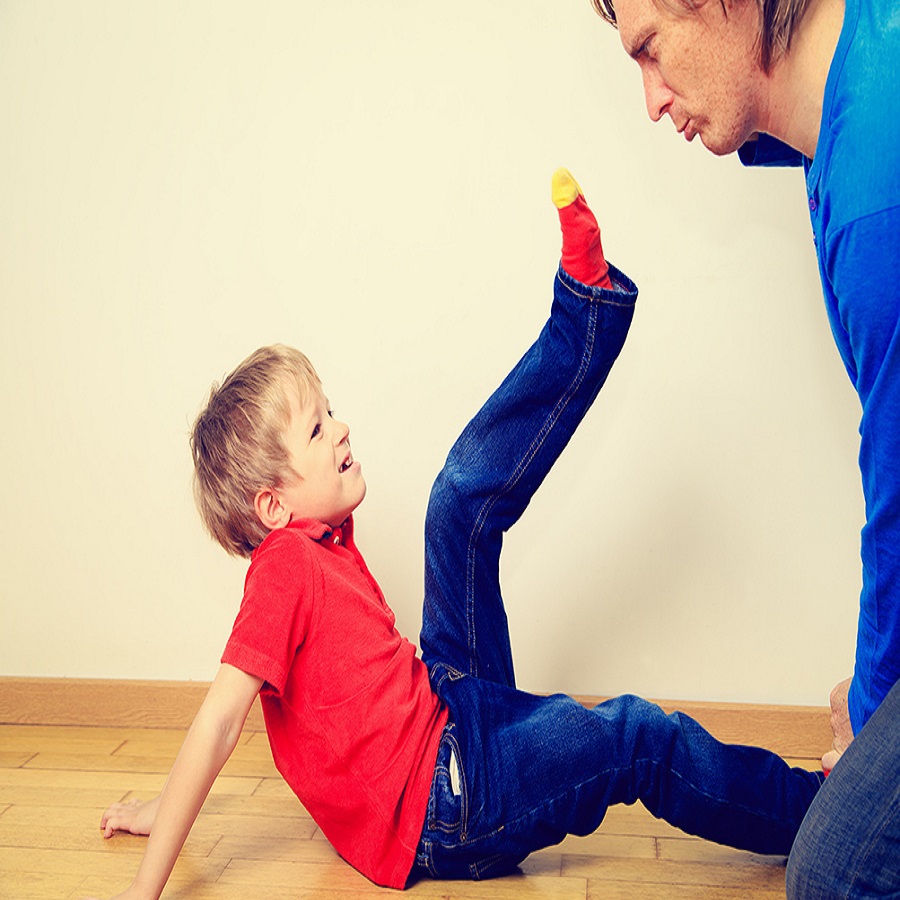Exploring the Reasons Behind Toddler Hitting
When toddlers hit, parents often wonder, ‘Why is my toddler hitting me?’ Understanding this behavior is key to managing it effectively. Here are several reasons why toddlers might resort to hitting:
- Testing Boundaries: Toddlers are constantly learning about their environment and may hit to see how you react.
- Lack of Impulse Control: Their brains are still developing, particularly in areas that regulate self-control.
- Big Emotions, Little Words: Toddlers feel strong emotions but don’t have the language skills to express them.
- Modeling Observed Behavior: If toddlers see hitting around them, they may mimic it.
- Frustration and Overwhelm: When overwhelmed or frustrated, hitting can be an immediate outlet for their feelings.
- Attention-Seeking: Sometimes, hitting is a way for toddlers to get your attention quickly.
By understanding these reasons, parents can take steps to mitigate hitting and guide their toddlers toward more acceptable ways of expressing themselves.

The Role of Development and Impulse Control in Hitting
Understanding why toddlers hit often involves looking at their stage of development and their ability to control impulses. The frontal lobe of a child’s brain, which is responsible for impulse control, is not fully developed in the toddler years. This lack of development means that toddlers might act on the urge to hit before considering the consequences. They understand hitting is wrong after the fact but often can’t help themselves in the heat of the moment. As they age, their impulse control improves, reducing instances of hitting.
Here are some points to consider about development and impulse control in toddlers:
- Brain development: Toddlers’ brains are still growing, especially in areas that manage self-control.
- Impulse control starts late: The ability to resist impulses doesn’t begin to develop until around three to four years of age.
- Learning by testing: Toddlers learn about their environment by testing limits, which can include hitting.
- Inability to process emotions: When they can’t express what they feel, toddlers may resort to physical actions.
Recognizing that hitting is part of a developmental phase can be reassuring for parents. It means that with time and proper guidance, toddlers will naturally grow out of this behavior. However, that doesn’t mean parents can’t help things along. Here are some strategies to support the development of impulse control:
- Manage expectations: Understand and accept that toddlers will occasionally struggle with impulse control.
- Supervise play: Watch how your toddler interacts with others and be ready to intervene.
- Model calm behavior: Show your toddler how to express feelings without hitting.
- Use simple language: Explain consequences and feelings in words your toddler can grasp.
- Positive reinforcement: Praise your toddler when they exhibit good self-control.
By supporting toddlers as their brains develop, parents can help them learn to control their impulses, including the urge to hit.
Positive Discipline Techniques to Address Hitting
Positive discipline is a non-punitive approach that focuses on teaching good behavior. Here are techniques to address toddler hitting:
- Be Consistent: Always respond the same way to hitting to teach that it’s unacceptable.
- Stay Calm: Keep your own emotions in check. Respond with a firm “No hitting” in a calm voice.
- Explain Feelings: Help your toddler understand that hitting hurts. Say, “Hitting hurts others. We don’t want to cause pain.”
- Offer Alternatives: Teach your toddler to use words or ask for help when upset, instead of hitting.
- Praise Good Behavior: When your toddler doesn’t hit, praise this choice. Say, “I like how you used your words!”
- Time-In Instead of Time-Out: Spend time with your toddler to teach the behaviors you want to see.
- Teach Apologies: If they hit, encourage a sincere “I’m sorry.” This reinforces the lesson that hitting is wrong.
- Set a Positive Example: Show gentle behavior. Use gentle touches and kind words in your own actions.
By using these techniques, you guide your toddler toward expressing themselves in healthier ways.
Setting Boundaries and Consistent Consequences
Setting clear boundaries and having consistent consequences for hitting are essential in teaching toddlers appropriate behavior. To manage toddler hitting effectively, consistency is crucial. Each time your child hits, they should know exactly what will happen as a result. This predictability helps toddlers understand the connection between their actions and the outcomes.
Here are practical steps for setting boundaries and establishing consistent consequences:
- State Clear Rules: Clearly articulate that hitting is not allowed. Use simple, consistent language every time.
- Immediate Response: React promptly to hitting to reinforce the rule against it.
- Defined Consequences: Decide on a consequence for hitting and apply it each time, such as a brief time-out or removal from the situation.
- Follow Through: Always enforce the consequence so your toddler knows what to expect.
- Reinforce Boundaries: Remind your toddler of the rules before situations where they might be likely to hit.
- Avoid Physical Punishment: Instead of spanking, choose non-physical consequences that teach alternative behaviors.
- Discuss the Outcome: After the consequence has been applied, talk to your toddler about why hitting is wrong and what they can do instead.
By maintaining consistent responses to hitting, you teach your child to understand the limits of acceptable behavior, helping them feel secure and aware of the consequences of their actions.

Modeling Behavior and Teaching Empathy
When addressing toddler hitting, modeling behavior is a powerful tool. As toddlers learn by observing, it’s crucial for caregivers to demonstrate gentle and empathetic behavior. Here are effective ways to model behavior and teach empathy:
- Demonstrate Gentle Touch: Show your toddler how to touch others softly. Use actions like gentle pats or strokes and verbalize what you are doing.
- Express Feelings Verbally: When you feel upset, express it in words. Say, ‘I feel sad,’ instead of showing anger through actions. Your toddler is watching and learning.
- Praise Empathetic Actions: If your toddler shows concern for someone, praise them. Say, ‘It’s kind to check if they’re okay.’
- Read Stories about Feelings: Choose books that discuss emotions. Talk about how characters might feel and ask your toddler questions.
- Use Role-Play: Act out situations with dolls or toys where one is kind to another. Discuss how nice actions make the toys ‘feel’ happy.
- Avoid Aggressive Behavior: Don’t hit or yell in front of your toddler. They may think it’s okay to copy that behavior.
- Encourage Apologies: If your toddler hits, encourage a meaningful apology. This teaches them to recognize and respond to the feelings of others.
By practicing these steps, you can help your toddler understand and value empathy, which is a key to reducing aggressive behavior like hitting.
Redirecting Aggressive Behavior
When a toddler starts to hit, redirecting their behavior can prevent harm and teach better habits. Here’s how to redirect aggressive behavior in toddlers:
- Identify Triggers: Look for signs that your toddler is about to hit, such as clenching fists or a frustrated face.
- Intervene Early: Step in quickly if you see signals of upcoming aggression.
- Distract and Divert: Offer an alternative activity to grab their attention away from hitting.
- Teach Gentle Touch: Guide their hand to pat softly or give a high-five instead of a hit.
- Use Simple Commands: Say ‘use soft hands’ or ‘no hitting’ in a firm, calm voice.
- Praise for Pausing: If they stop themselves from hitting, give them praise for their self-control.
- Offer Physical Outlets: Provide ways to use energy positively, like jumping on a trampoline or dancing.
- Stay Consistent: Always react the same way to aggression to reinforce the lesson.
By following these steps, you can help your toddler learn to manage their impulses and replace hitting with positive actions. Reinforcing these actions consistently will instill healthier response habits over time.
When to Seek Professional Help for Aggressive Behaviors
Seeking professional help for a toddler’s hitting is important in certain situations. Here are some signs that it might be time to consult a specialist:
- Frequent or Intense Hitting: If hitting is not just occasional and seems very intense.
- Hitting Without Obvious Triggers: When hitting happens unpredictably, without clear reasons.
- Self-Harm: If the toddler starts to hit themselves, not just others.
- Reaction to Discipline: If hitting increases despite consistent and appropriate discipline.
- Impacts Daily Functioning: When hitting disrupts daily routines or social interactions.
- Increasing Aggression: If aggressive behaviors escalate or other harmful actions emerge.
- Lack of Remorse: When your toddler shows no regret after hitting someone.
- Changes in Behavior: Sudden or severe behavior changes, like more tantrums or withdrawal.
Professionals can offer tailored advice and strategies to address aggressive behaviors. They help understand underlying issues and guide you to foster a safer environment for everyone. Psychotherapy or counseling might be recommended. Sometimes, issues at home or developmental delays can be the cause. Getting help early can make a big difference in your toddler’s life and the well-being of your family.
It’s crucial to act promptly if you’re concerned about the severity or frequency of hitting. Options like pediatricians, child psychologists, or family therapists can provide the support needed. They can work with you and your toddler to improve behaviors and manage emotions in healthy ways.

Establishing Healthy Routines to Prevent Hitting
Creating healthy routines can help prevent toddler hitting. Start with regular schedules for meals and sleep. Hungry or tired toddlers are more likely to hit. Introduce plenty of playtime. Active play helps toddlers use energy in positive ways. Keep calm and simple house rules. Toddlers need clear expectations. Teach and practice calming techniques. Deep breathing or counting can help toddlers manage emotions. Limit screen time. Too much can make toddlers irritable. Be patient and repeat routines. Toddlers learn through repetition. Praise good behavior often. This encourages toddlers to keep behaving well. Seek balance in activities. Mix quiet time with active play for a good energy outlet. Remember, consistency is key in all routines to help toddlers learn and grow.
